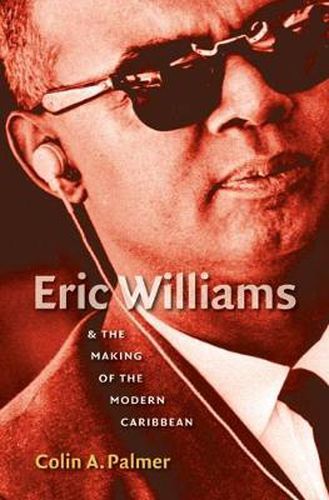Readings Newsletter
Become a Readings Member to make your shopping experience even easier.
Sign in or sign up for free!
You’re not far away from qualifying for FREE standard shipping within Australia
You’ve qualified for FREE standard shipping within Australia
The cart is loading…






This book covers the important West Indian scholar and politician.Born in Trinidad, Eric Williams (1911-81) founded the Republic of Trinidad and Tobago’s first modern political party in 1956, led the country to independence from the British culminating in 1962, and became the nation’s first prime minister. Before entering politics, he was a professor at Howard University and wrote several books, including the classic Capitalism and Slavery . In the first scholarly biography of Williams, Colin Palmer provides insights into Williams’ personality that illuminate his life as a scholar and politician and his tremendous influence on the historiography and politics of the Caribbean.Palmer focuses primarily on the fourteen-year period of struggles for independence in the Anglophone Caribbean, when Williams was at the center of most of the conflicts and challenges that defined the region. Looking at the ideas of Williams, as well as those of his Caribbean and African peers, Palmer demonstrates how the development of the modern Caribbean was inextricably intertwined with the evolution of a regional anticolonial consciousness.
$9.00 standard shipping within Australia
FREE standard shipping within Australia for orders over $100.00
Express & International shipping calculated at checkout
This book covers the important West Indian scholar and politician.Born in Trinidad, Eric Williams (1911-81) founded the Republic of Trinidad and Tobago’s first modern political party in 1956, led the country to independence from the British culminating in 1962, and became the nation’s first prime minister. Before entering politics, he was a professor at Howard University and wrote several books, including the classic Capitalism and Slavery . In the first scholarly biography of Williams, Colin Palmer provides insights into Williams’ personality that illuminate his life as a scholar and politician and his tremendous influence on the historiography and politics of the Caribbean.Palmer focuses primarily on the fourteen-year period of struggles for independence in the Anglophone Caribbean, when Williams was at the center of most of the conflicts and challenges that defined the region. Looking at the ideas of Williams, as well as those of his Caribbean and African peers, Palmer demonstrates how the development of the modern Caribbean was inextricably intertwined with the evolution of a regional anticolonial consciousness.